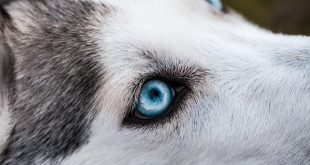Our pets are our family. For animal lovers and, well, almost everyone, our pets are an integral part of our everyday lives. They’re there for us when we need them. They protect us. They play with us. They seem to know when something is wrong and offer themselves as comfort. With the great importance that pets have in our lives, it is only right to supply them with the proper nutrition that we would give any member of our family.

Diet Considerations
The most common pets–dogs and cats, are omnivores. But they have a completely different biological makeup to them that needs different fuels. In short, what we can eat is often not something they can. Now, we all know that grapes and chocolate for dogs are bad. We also know that cats are completely incapable of surviving on a vegan diet. But there are some nuances and details that one might not be too keen on. More often than not, we give ourselves food that we really shouldn’t be eating. But unlike us, our pets don’t have much of a choice. Here are some wholesome foods and considerations to take when it comes to feeding your family pet.
Healthy, Vet Approved Dog Food
The first thing any pet owner should do is read the nutrition label. Most animals survive and thrive on a host of different foods in the wild. Your pet, although domesticated, still has some of that in them, especially cats. So when you look at a label, try to imagine what an animal would eat out in the wild and try not to stray too far from that. Yes, dog food is okay, but there are tiers of quality when it comes to the bag. Your giant, mass produced, superstore, one-hundred pound bag of kibble might not be the healthiest option, regardless of how fancy the packaging is. It’s always a good idea to do some research and check a good dog food guide to make absolutely sure you’re buying the best. Also, be wary that the same companies often repackage the same product and market it as a premium kibble. These often lack the essential nutrients that your pet needs. Look for whole food labels with natural ingredients as opposed to “enriched” foods.
Fibrous Veggies
A big movement in the pet community is the idea of “raw food.” Like most things, these fads have a bit of truth in them and a lot of fallacies. It’s true that some raw foods every now and then are beneficial to any pet, but the idea of only feeding one raw food is a bit skewed. Your pet might also have allergies that one is not aware of. It all has to do with the digestive system of the modern domesticated dog. Vegetables are a wonderful addition to a dog’s diet. Things like asparagus, carrots, kale, and mushrooms not only provide your pet with the vitamins and nutrients it would provide us, it has the added benefit of having enough fiber to add weight to their GI tract for healthy, large poop.

Raw Meat… On Occasion
A bit of raw meat isn’t bad. But there are some dangers regarding contamination. The live enzymes that raw meat offers have benefit, but be sparing with it. Also, some dogs just don’t like it. If you’re introducing raw meat suddenly after an entire lifetime of having no contact with it, there’s a chance your dog will just turn away from it. Now, it’s not advisable to give a dog table food because of all the strange ingredients and preservatives they have in it. But on the flip side, a bit of fresh, USDA certified raw hamburger on a weekend is going to keep that active GI healthy. In this instance, more isn’t better. We humans have a tendency to flood the system with good things until it ceases to be good. This is absolutely to be avoided when it comes to your pet.
Eggs
Eggs are the best. If you want to add a bit of flavor and a good, safe protein boost to your pet’s diet, scramble up an egg! Don’t overdo it with the oil, though. Although it may be fine, there are instances in which it may not agree with a dog’s stomach. But with that said, eggs are a wonderful source of selenium and riboflavin. These are minerals that are necessary in good hormone production and a healthy doggie metabolism
This is just a short guide to some great things to include in your pet’s diet. Keep in mind that although your pet will eat anything, your pet shouldn’t be the breathing garbage disposal. Treat your pet with the same kind of care and attention you would give any other member of your family. Give your pets everything they need to have a happy and healthy life for years, and years to come.
 World inside pictures Collect and share the best ideas that make our life easier
World inside pictures Collect and share the best ideas that make our life easier








